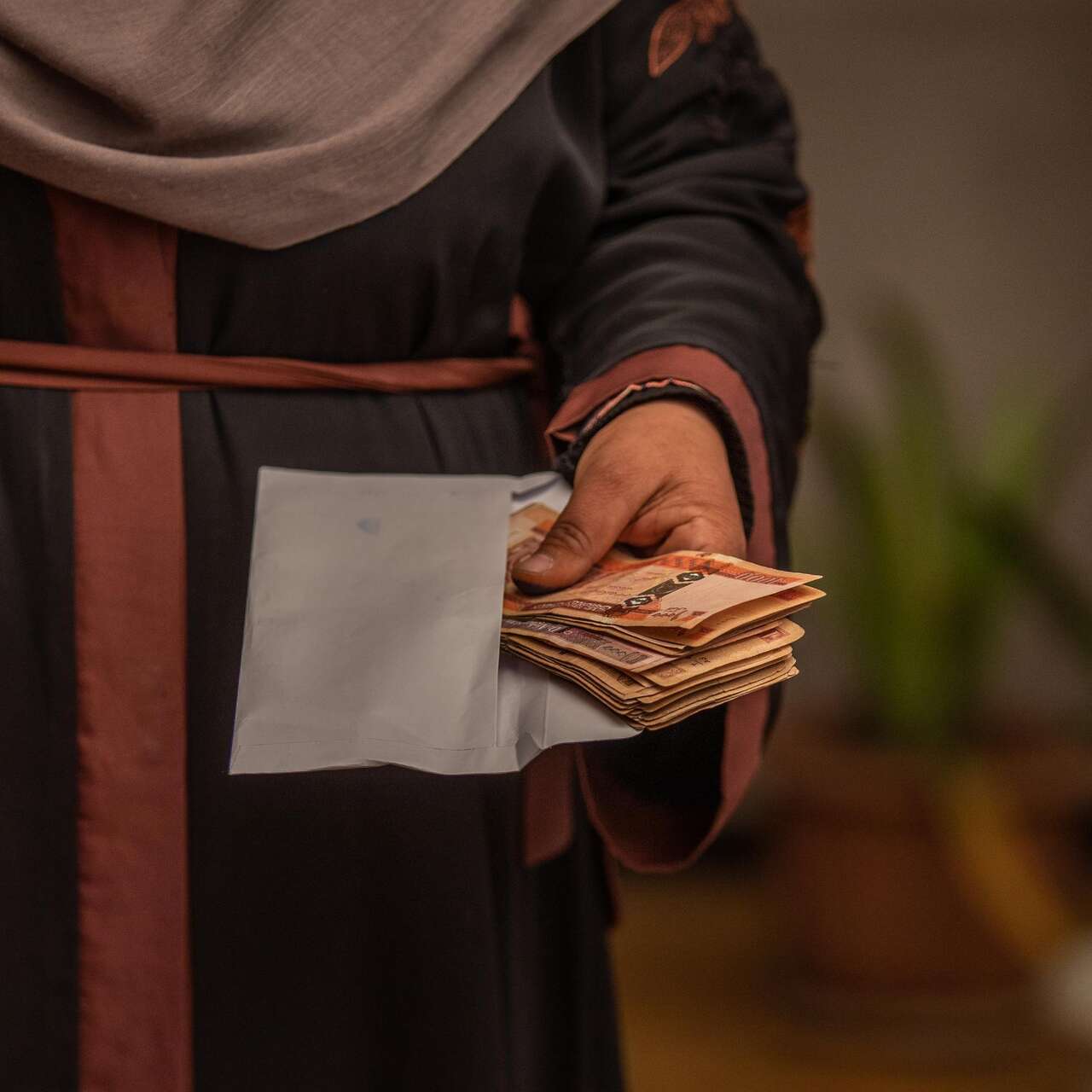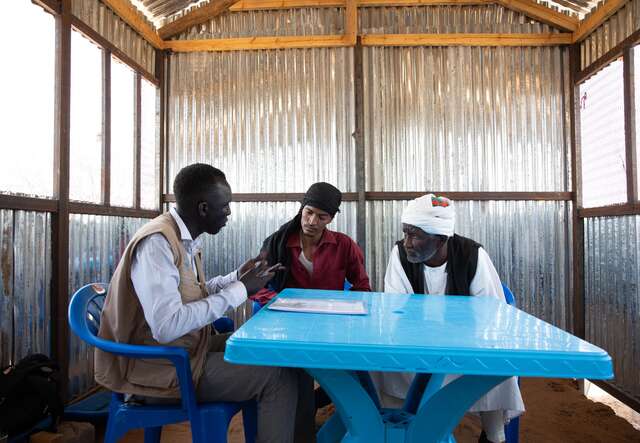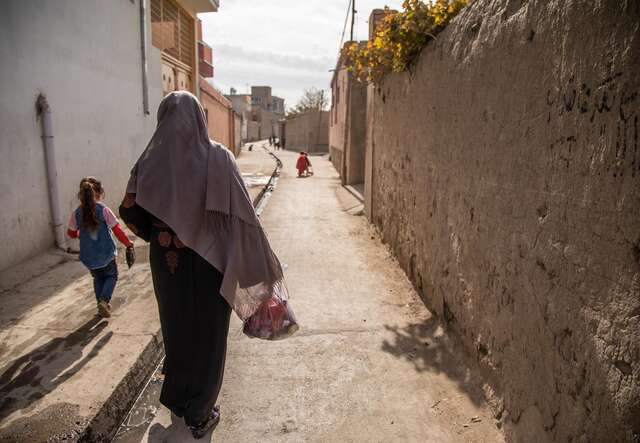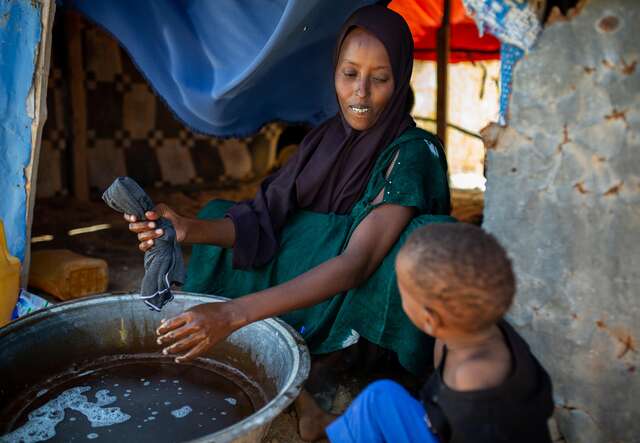
What the cost of living crisis looks like around the world
While the global economy is predicted to have a “soft landing”, countries like Sudan are facing a cost-of-living catastrophe.

While the global economy is predicted to have a “soft landing”, countries like Sudan are facing a cost-of-living catastrophe.
The 'cost of living crisis' is now a familiar phrase as prices of everyday goods have increased dramatically in recent years. In the UK, prices remain high while consumer prices have been increasing around the world, too, with average global inflation at 6.8% in 2023. This means that food, energy bills, and rent are still getting more expensive for everyone.
But while the global economy is forecast for a “soft landing” in 2024, countries where the IRC works, like Sudan, are facing a cost-of-living catastrophe on a whole different scale.
A year since conflict began in Sudan, the economy is on the brink of collapse, and spiralling prices for food and basic necessities are further contributing to the world’s worst humanitarian crisis.

Sudan is currently at the top of the IRC's Emergency Watchlist for 2024. After one year of fighting, the country is experiencing the world's worst displacement crisis and one of the world’s worst hunger crises. Humanitarian needs have more than doubled since the start of the conflict, with nearly 25 million people in need of help.
Food prices are a significant problem within the wider crisis. A new report published by the IRC found that, while markets are stocked with food in many areas, people cannot afford to buy goods due to higher prices. Food prices have increased by 88% since the war began - even in areas not directly affected by the conflict - and were already soaring before the war with inflation reaching 359.1% in 2021.
Ali was forced to flee Sudan with his family. The conflict and economic situation meant their only option was to leave their lives behind, including the family business. "This war has affected me emotionally, financially, in every way," he said, speaking to International Rescue Committee staff at a transit centre in neighbouring South Sudan.
Sudan is quickly becoming the world's largest hunger crisis and emergency cash transfers offer a crucial lifeline. A report by the IRC and regional partners found that while markets are well-stocked with food and goods, people are unable to afford them due to rapidly rising prices.
Donate to support the IRC’s work in Sudan, including emergency cash assistance.
Since the shift in power in Afghanistan in August 2021, the country has experienced near economic collapse. Policies meant to isolate the Taliban by cutting off Afghanistan from the international financial system have crippled the national economy.
Ordinary Afghans have paid the price of economic crisis that left millions of people without a source of income. People who had jobs and were self-sufficient are now relying on humanitarian aid. Poverty is extremely high across the country, with nearly 50% of Afghan households struggling to meet basic needs.

Noor* fled Kunduz Province with her three children when the Taliban came and conflict was raging. She had no time to bring any belongings except some clothes for her kids.
“I thank [the IRC] for what they have done for us so far,” she said after she received cash assistance in late 2021. “Today, I want to buy tea and sugar, onions, and things like that we need. It means that my kids will not starve to death. Now, they are hopeful.”
In 2022, the IRC scaled up our staff in Afghanistan from 1,700 to 5000 today, with 99% Afghan staff, and 40% of staff who are women. We operate in 12 provinces, supporting 68 health facilities and running 30 mobile health teams across the country. We also provide emergency cash assistance, family support centers, and employment skills training.
One of the most severe inflation crises recorded has led to economic collapse in Lebanon, with an increasing number of people being unable to afford their cost of living. The economic turmoil in Lebanon also impacts the 1.5 million Syrian refugees who have found safety in the country. Across the country, both Lebanese and refugees are now struggling to afford their basic costs.
Since 2019, Lebanon’s GDP has shrunk 40% while consumer prices continue to soar, reaching inflation rates of 170% for the year 2022. Prices of goods have risen while the value of wages has fallen, forcing consumers to turn to importers who sell crucial goods, like fuel and medicine, on the black market.
Since 2012, the IRC has been providing legal services, education, cash assistance, training and economic support for refugees and local communities. Read more about the IRC in Lebanon.
Somalia’s economic outlook has been hampered by a series of shocks that have left its people struggling to afford basic necessities. A series of climate-induced disasters and ongoing political unrest have left Somalis with an extreme cost of living crisis.
Somalia’s recent drought has been the longest and most severe in four decades, and its effects are expected to be felt long after. The drought has impacted food supplies, with 4.3 million people facing crisis (or worse) levels of food insecurity.

Following the drought, heavy seasonal rains caused catastrophic flooding in late 2023 which destroyed farmland and forced more than 706,000 people from their homes. Damage from flooding could lead to reduced farming production and a higher risk of crop failures, driving decreased household purchasing power and high food costs at markets.
The IRC is scaling up our programs in Somalia to address drought and rising food insecurity. We provide health, nutrition, water and sanitation services; women’s protection and empowerment; and cash assistance to drought-affected populations across the country.
The International Rescue Committee (IRC) helps people affected by humanitarian crises to survive, recover and rebuild their lives.
Our cash relief programme helps clients purchase basic necessities and regain control of their lives. Emergency cash assistance programmes in Sudan, Somalia, Afghanistan, and Lebanon give families the power to choose how best to meet their own needs. Learn more about why cash assistance is a critical form of humanitarian aid.
*Names have been changed for client privacy